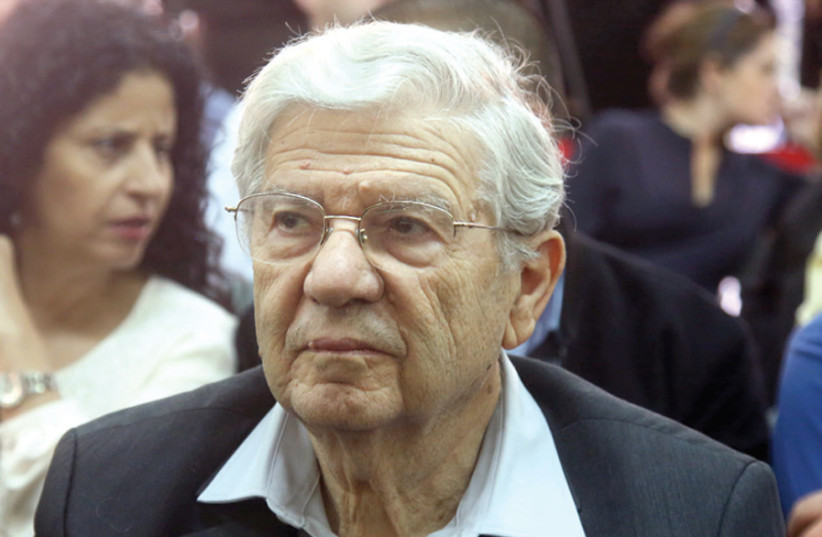The period between now and February 1 has created the highest likelihood in years that former prime minister Benjamin Netanyahu will agree to the conditions set by attorney-general Avichai Mandelblit for a plea deal in his corruption cases.
Multiple sources from Netanyahu’s camp, for the first time in years, pointedly did not deny the possible scenario, though none of them was willing to confirm it, while sources from the prosecution side are treating the possibility more seriously than ever before.
However, the deal is far from a foregone conclusion.
Netanyahu may reassert his prior position of fighting to the end and he may not know what he will decide until the last minute, but a scenario which had been strongly dismissed is now being taken seriously by all parties.
During Thursday and Friday, The Jerusalem Post learned that attorney-general Avichai Mandelblit was willing to enter plea bargain talks with Netanyahu only if it is understood in advance that the former prime minister would be convicted of corruption-related crimes and that the prosecution would seek a court finding of moral turpitude to exclude him from public office for seven years.
Currently, there are only informal negotiations between emissaries to determine whether Netanyahu is serious about accepting such a deal.

If Netanyahu is only willing to accept an Arye Deri-style deal, where the prosecution does not seek a finding of moral turpitude and thus allow him to remain in politics merely by resigning his Knesset seat on a temporary basis, Mandelblit would be unwilling to enter formal talks about how to amend the indictment and other issues.
However, if he accepts that his political fate will be determined by the court and with an aggressive push by the prosecution to send him into retirement, the attorney-general is willing to enter negotiations.
Over the weekend it was reported that former chief justice Aharon Barak is one of the forces behind Mandelblit’s consideration of a deal without jail time, as long as it allows the prosecution to seek an end to Netanyahu’s career before the court.
Mandelblit has received feedback from a number of former attorney-generals at crucial stages of the case, including when deciding whether to indict Netanyahu and if the indictment could be issued during the period when the country experienced a series of elections.
Barak’s support could help any such deal survive a challenge before the High Court of Justice.
Currently, Mandelblit feels he is in a much stronger position than Netanyahu, because the former prime minister initiated the latest round of informal talks and the attorney-general is stepping down on February 1.
In addition, Mandelblit’s immediate replacement will be State Attorney Amit Aisman, who Netanyahu tried to block from taking office for several months.
Furthermore, almost all of the state prosecution personnel would prefer to continue with the trial and send Netanyahu to jail. They even wanted to indict him on more serious bribery charges in Cases 1000 and 2000 (the “illegal gifts” and “Yisrael Hayom-Yediot Aharonot” affairs) than the more minor charges Mandelblit decided on in the end — bribery only in Case 4000 (the “Bezeq-Walla affair”).
Based on the above, Mandelblit is even unwilling to bring a proposal before the state prosecution team unless Netanyahu agrees to the basic framework of corruption-related crimes (even if reduced) and the court decides his political fate with an aggressive prosecution push for moral turpitude.
Mandelblit feels that bringing anything less – including many of the scenarios being floated in media reports by Netanyahu messengers – would be scotched by the rest of the prosecution team, and he is only willing to try to get them to bend so far.
Mandelblit is ready to push the prosecution to agree to no jail time if the above requirements are met and if Netanyahu agrees to a finding that formally requires jail time, but is unofficially converted to serious community service hours (meaning Netanyahu would not actually enter jail.)
The attorney-general is waiting for Netanyahu’s response to see if his latest outreach is for real or a momentary whim in the hope that Mandelblit, following cross-examination of key witness Nir Hefetz, could be bulldozed in his last two weeks of office into a Deri-style deal.
Deri cut a plea deal in which he must resign from this Knesset, but can run for the next one, remain head of Shas and possibly even seek to become a future minister, though that issue is unclear.
For Netanyahu, it seems that the turning point was the mix of the Hefetz testimony, which he has reportedly been told went better for the prosecution than expected even with some of the defense team’s wins, along with Mandelblit’s retirement on February 1.
In addition, the current government passed the budget in November and shows no signs of imminent collapse after six months.
Another recent development is that Yediot owner Arnon (Nuni) Mozes is reportedly close to a plea deal with the prosecution.
It is unclear how exactly this would impact Netanyahu, but it could be another source of uncertainty encouraging him to cut a deal.
